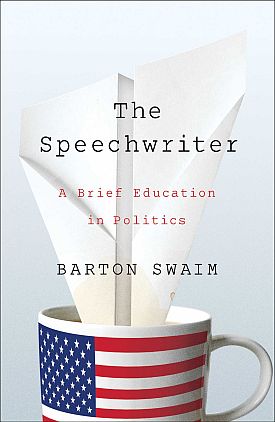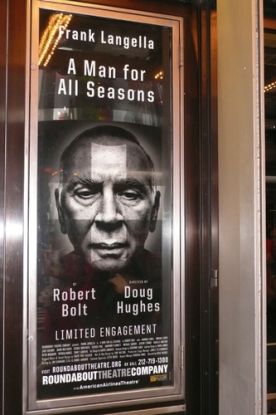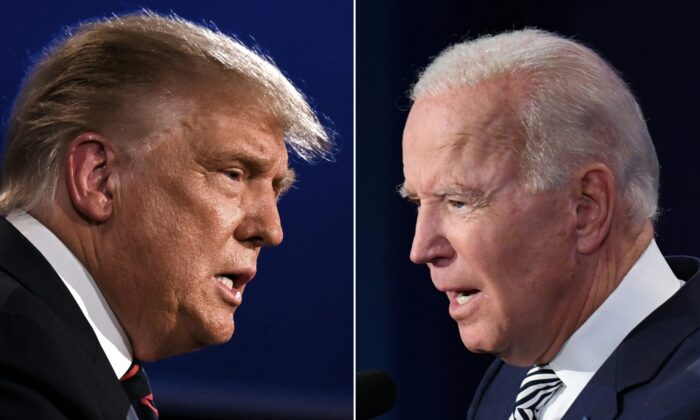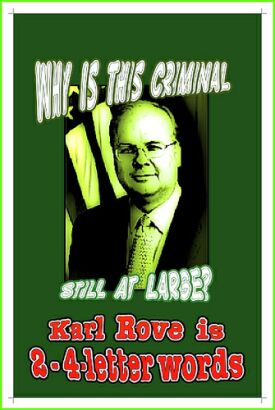The Truth Will Set You Free
From The New CriterionRussell Brand as Charles Manson
The list is long of the sins for which Republicans in Congress are answerable to the stern moralists of the New York Times editorial page. Far from the least of them, now, is their rough handling of President Obama and his administration over well-publicized failures in the new health-care insurance schemes associated with the President’s “signature achievement” of the Affordable Care Act. “Congressional Republicans” (so the Times editorialized)
have stoked consumer fears and confusion with charges that the health care reform law is causing insurers to cancel existing policies and will force many people to pay substantially higher premiums next year for coverage they don’t want. That, they say, violates President Obama’s pledge that if you like the insurance you have, you can keep it. Mr. Obama clearly misspoke when he said that. . .
Do you sense a “but” in the offing? The Times’s apologia could have been taken over by the President himself, though when he got around to what the media hailed as his own “apology” a few days later, he chose slightly different words. “I am sorry that they, you know, are finding themselves in this situation, based on assurances they got from me,” he said in an interview. “We’ve got to work hard to make sure that they know we hear them and that we’re going to do everything we can to deal with folks who find themselves in a tough position as a consequence of this.”
“Deal with”? I can’t say I like the sound of that very much. Mr Obama also denied that there had been any deliberate deception, although he did not apologize for saying only a few days earlier that he had always intended — in petto, one supposes, since he never said it — a silent reservation to his absolute assurance concerning those, already numbering in their hundreds of thousands, who have not been able to keep their coverage. If he knew of them and did not say anything, that sure sounds like deliberate deception to me, even if you discount a story in The Wall Street Journal claiming that policy advisers had warned that the promise could not be kept but “were overruled by political aides.” But then no one could have expected at any time in the last five years that, if there were the penumbra of a shadow of a doubt left, the media in general and The New York Times in particular would not give the President the benefit of it.
You don’t have to have a very long memory to know that this has not always been the case. Asked by the Times’s “Public Editor,” Margaret Sullivan, if the editorialist’s “misspoke” had not been taking it a little too easy on Mr Obama over what some readers, not all of them from among his political enemies, were disposed to call a lie, editorial page editor Andrew Rosenthal replied, apparently with a straight face, that “We have a high threshold for whether someone lied.”
The phrase that The Times used “means that he said something that wasn’t true.” Saying the president lied would have meant something different, Mr. Rosenthal said — that he knew it was false and intended to express the falsehood. “We don’t know that,” he said.
There’s admirable restraint for you! Yet as Seth Mandel of Commentary noted, under President Obama’s predecessor the threshold for calling the President a liar was anything but high. In those days, editorial resort to the words “lie” and “lying” as applied to statements by President George W. Bush were made without even the pretense of any knowledge “that he knew it was false and intended to express the falsehood.”
It will, of course, come as no surprise to readers of my animadversions upon the media that The New York Times observes a blatant double standard in such matters, but it is still a matter of some interest that Mr Rosenthal wishes to revert to an older meaning of the word “lie,” now that it suits his own political purposes to do so. As I noticed in these pages last year (see “Lexicographic Lies” in The New Criterion of October, 2012), the meaning of “lie” seems to have changed when we weren’t looking. I found considerable lexicographical authority for a definition of the word which makes no distinction between a lie and an honest mistake. Andrew Rosenthal’s hypocrisy at least shows a glimmering of awareness that the promiscuousness with which the charge of lying, often if not exclusively deceitful in itself, is now levied by one political side against the other — a liberty with which his paper and his page of the paper had much responsibility for promoting — signals a breakdown of basic trust in our political culture which is essential to the continued existence of democratic institutions and of democracy itself.
It is my impression that the ease with which the accusation of lying is made has its origins in the era of Vietnam and Watergate, but that it reached its current level of toxicity with President Bill Clinton’s “lies about sex” — which many of his defenders at the time seemed to think not lies at all on the grounds that everybody lied about sex — and with what I took to be the revenge of the left for poor Bill’s public humiliation by the invention, accepted without question by The New York Times and widely if not universally by the rest of the media, of a much worse lie supposedly told by his Republican successor. That was of course the tale of the Weapons of Mass Destruction in Iraq, which was a prominent part of the advertised reasons for going to war there in 2003. “When Clinton lied, nobody died,” chanted the anti-war brigades — a slogan which called attention to its own retaliatory purpose and should therefore have fostered more skepticism than it did about the accuracy of its implied claims about the supposed lethality of President Bush’s supposed “lies.”
Yet this frankly partisan slander has remained unquestioned by the left and most of the the media to this day in spite of the complete absence of any evidence that there had ever been such a lie. At least not if you believe, as I do, in the traditional definition of “lie” as a deliberate attempt at deception. Of that there was clearly none, in my view, since there was and is every reason to suppose that the President himself believed in the claims of his intelligence services (and those of numerous foreign observers) about the WMD, as we learned to call them at the time. If The New York Times then saw no reason to doubt — and apparently still sees no reason to doubt — that Mr Bush “knew it was false and intended to express the falsehood” we can guess the reason why. I seem to remember that one or two of the Clinton apologists in 1998 at least had the grace to apologize for taking a very different attitude towards alleged sexual shenanigans among the powerful seven years earlier during the Clarence Thomas confirmation hearings. As The New York Times was not among them, I suppose it is pointless to hope for an apology to former President Bush coming from that quarter.
I hope it is not unduly cynical of me also to doubt that we can now count on the Times for a uniform rigor in its application of the traditional meaning, hitherto thought obsolete, of the word “lie.” On the one hand the sloppy usage could be taken as just one more example of the sort of linguistic permissiveness which has abolished the distinction between uninterested and disinterested or turned literally into a mere intensifier. All the experts are agreed that “purist” attempts to preserve the old meanings of such words are doomed and had better be given up in the name of what we might call psephological semantics, or the doctrine that if most people misunderstand or misuse a word then the misunderstanding or misuse is, as it were, electorally legitimized. But there is another political dimension to the latitudinarian interpretation of “lie” — a word whose moral force has outlived its moral meaning. For the only beneficiaries of a tolerance of indiscriminate charges of lying are those who would themselves lie with impunity and who therefore have an interest in a general devaluation of the rhetorical currency.
For if we may call it lying whenever anyone makes a mistake, then there will be so much lying going on that lies of the old-fashioned sort, lies that are deliberate falsehoods designed to mislead, malign and defraud others, may pass unnoticed as anything out of the ordinary. Some would argue that we have already arrived at that unhappy state. “They all do it” is, not coincidentally, now the watchword of popular politics from the late-night comedians to the voting booth and generally supposed to be a chief cause of political apathy in the young, the firmness of whose belief in the corruption of politicians is often directly proportional to their ignorance of actual politics. Pollsters and the media who promote pollsters’ findings are complicit in fostering this apathy by pretending, for example, that the “approval rating” of Congress, always extremely low, can be separated from approval or disapproval of the very different parties that make it up and that, therefore, the relevant political choice facing ignorant young people, in particular, is not between Democrat and Republican but between cool and uncool.
In Britain at around the same time that the Republicans were being beastly to President Obama, the comedian Russell Brand — a man who added the word “retard” to “liar” among the permissible epithets to describe the last President Bush (see “Our Diminished Debate” in The New Criterion of October, 2009) — had a well-publicized confrontation with the Grand Inquisitor of British television, Jeremy Paxman, in which the comedian was widely supposed to have come off the winner over the Inquisitor. Perhaps this was because the Inquisitor’s principal — indeed, his only — charge against the comedian was that, as he didn’t vote and, indeed, encouraged others, including his seven million young followers on Twitter, not to vote, he had no standing to pronounce on matters political. It’s a foolish notion applied to someone who doesn’t vote on principle, even if that is the still more foolish principle that the “system” needs to be changed by revolutionary means, as it is in Mr Brand’s case. When the latter kept repeating words to the effect that “The planet is being destroyed, we are creating an underclass, we’re exploiting poor people all over the world, and the genuine legitimate problems of the people are not being addressed by our political class,” Mr Paxman had nothing more to the point to say than that “All of those things may be true” or “There are many people who would agree with you.”
That last statement certainly proved to be true when otherwise respectable political commentators such as Matthew Norman of The Independent cried out, in effect, Right on, Russell!
When there is no ideological conflict and no clear distinction, politics and politicians tend to become dull. The feeling that the identity of the governing party makes minimal difference to people’s lives (not one currently shared, perhaps, by the disabled, the poor and others victimised by the Coalition) was reinforced by the global financial crisis which clarified the government’s impotence. The blandness, greed and venality in evidence at Westminster these recent years has not helped. Nor has the fecklessness. Presented with the challenge of re-engaging swathes of the electorate — some simply not bovvered; others as clever but frustrated as Russell Brand — the political class has suppressed any latent urge to try to make politics big again with grand themes.
Subsequently, Mr Paxman himself announced that he was substantially in agreement with his guest, though it hadn’t seemed so at the time of the interview. “At the next election,” he wrote, “we shall have a choice between the people who’ve given us five years of austerity, the people who left us this mess, and the people who signed public pledges that they wouldn’t raise student fees, and then did so — the most blatant lie in recent political history.” No wimpy hesitation about using the word “lie” there, then. Perhaps he also now believes that violent revolution isn’t such a bad idea either. Jonathan Freedland of The Guardian pointed out that
if politicians are held in low regard, if not outright contempt, then some responsibility surely belongs to those from the rottweiler school of interviewing who cannot look at an elected official without dripping disdain. Those who watch Paxman, or listen to the Today programme’s John Humphrys, can hardly be blamed for picking up some of that cynical attitude to the Westminster classes, which regards anyone who’s won an election as automatically suspect. Recall Paxman’s description of his own mindset when interviewing a politician: “I am always asking myself why is this lying bastard lying to me?”
Obviously, the media have to play a careful game. On the one hand, they are happy to encourage the popular belief in the venality of all politics, and the principle that “they all do it,” so as to cover up for those who do do it at the expense of those who don’t. On the other hand, they cannot allow public cynicism to become so universal that people stop caring about the scandals that are their stock-in-trade and that depend on some lingering sense of the existence of political good guys and bad guys. One way out of that dilemma may be the encouragement of the adolescent Marxism — which nevertheless fights shy of the Marxist label — of the likes of Russell Brand. He validates the youthful belief in political good guys without being so uncool as to suggest that they actually exist, just as he encourages utopian aspirations as legitimate without being so uncool as to spell out what he imagines his utopian future as consisting of. When Jeremy Paxman asked him what the government of his post-revolutionary state would look like, Mr Brand answered: “don’t ask me to sit here in an interview with you in a bloody hotel room and devise a global utopian system.”
Heavens no! The idea! In the rambling but intermittently funny New Statesman essay which was the occasion of his appearance on the Paxman show, he wrote: “Total revolution of consciousness and our entire social, political and economic system is what interests me, but that’s not on the ballot. Is utopian revolution possible? The freethinking social architect Buckminster Fuller said humanity now faces a choice: oblivion or utopia.” Could such an intelligent man as Buckminster Fuller really have said anything so stupid? Apparently so. But it gives us some idea of the usefulness to those of a certain political stripe of the conceit that all politicians are crooked or useless. It doesn’t even have to be in aid of the Revolution. Just think of Mr Brand’s legions of young followers. Can you think of anyone else who might have a reason to discourage the young from voting? How about those whose dysfunctional health care reform amounts to a new tax on the young for the benefit of the old?
Discover more from James Bowman
Subscribe to get the latest posts to your email.







